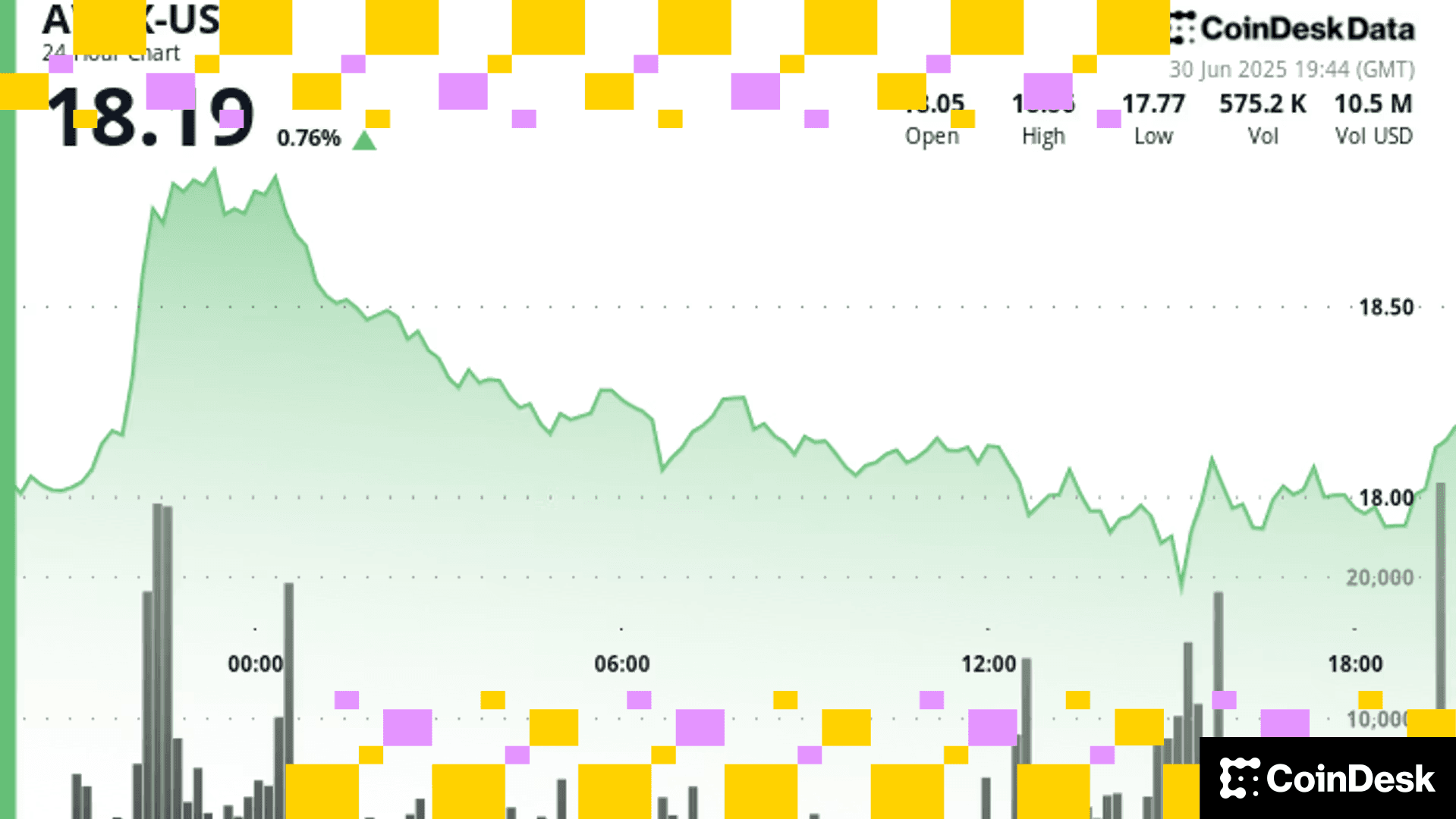Bitcoin Won’t Back U.S. Dollar, Presidential Hopeful Vivek Ramaswamy Says
The Republican candidate’s comments stand in contrast to Democratic candidate Robert F. Kennedy, who supports using bitcoin to stabilize the dollar.

- Vivek Ramaswamy, a Republican candidate in the 2024 U.S. presidential election, said he is a fan of bitcoin, but wouldn’t use the asset as a commodity to help stabilize the U.S. dollar.
- Ramaswamy was discussing the need for the U.S. Federal Reserve to focus solely on dollar stability.
U.S. presidential candidate Vivek Ramaswamy, a Republican, said that while he is a fan of bitcoin, he would not embrace the cryptocurrency as a commodity to help stabilize the U.S. dollar. His stance contrasts with Democratic candidate Robert F. Kennedy Jr., who said last month that he supported backing the dollar with bitcoin.
Ramaswamy, who accepts bitcoin donations for his 2024 election campaign, made the comment during an appearance on the Timcast IRL podcast hosted by Tim Pool. He was outlining his stance that the U.S. Federal Reserve should focus solely on stabilizing the dollar as a unit of measurement against commodities. As he listed examples of the commodities, Pool asked, “Bitcoin?”
“I think that bitcoin, for me, for a number of reasons, does not yet meet that commodity basket,” Ramaswamy said. “I’m a bitcoin fan. I spoke at a bitcoin conference. I want to stabilize the dollar against agriculture and farm commodities, gold, silver and nickel.”
“And there could be a point in time when bitcoin becomes part of that commodity basket. There’s some technical reasons why I would not include that today,” he continued.
CoinDesk reached out to Ramaswamy’s campaign for more details, but had not received a reply by publication time. In May, he told CoinDesk he was the only candidate who understands bitcoin deeply enough to have an intelligent discussion on a presidential debate stage.
The 37-year-old worked as a partner at a hedge fund before leaving to form the drug discovery-focused biotech company, Roivent Sciences. Last year, he co-founded the asset management firm Strive Asset Management, which has more than $750 million in assets under management. He is also the author of a book titled “Woke, Inc.: Inside Corporate America’s Social Justice Scam.”
In February, Ramaswamy announced his candidacy for the Republican Party’s nomination for president. According to the election data site FiveThirtyEight, he was polling at 6.9% among declared or presumed Republicans, which puts him in third place behind former president Donald Trump at 53.4% and Florida Governor Ron DeSantis at 15.6% in a crowded field of candidates.
Read more: U.S. Presidential Candidate Ramaswamy Takes Potshot at DeSantis Bitcoin Remark
More For You
Exchange Review - March 2025

CoinDesk Data's monthly Exchange Review captures the key developments within the cryptocurrency exchange market. The report includes analyses that relate to exchange volumes, crypto derivatives trading, market segmentation by fees, fiat trading, and more.
What to know:
Trading activity softened in March as market uncertainty grew amid escalating tariff tensions between the U.S. and global trading partners. Centralized exchanges recorded their lowest combined trading volume since October, declining 6.24% to $6.79tn. This marked the third consecutive monthly decline across both market segments, with spot trading volume falling 14.1% to $1.98tn and derivatives trading slipping 2.56% to $4.81tn.
- Trading Volumes Decline for Third Consecutive Month: Combined spot and derivatives trading volume on centralized exchanges fell by 6.24% to $6.79tn in March 2025, reaching the lowest level since October. Both spot and derivatives markets recorded their third consecutive monthly decline, falling 14.1% and 2.56% to $1.98tn and $4.81tn respectively.
- Institutional Crypto Trading Volume on CME Falls 23.5%: In March, total derivatives trading volume on the CME exchange fell by 23.5% to $175bn, the lowest monthly volume since October 2024. CME's market share among derivatives exchanges dropped from 4.63% to 3.64%, suggesting declining institutional interest amid current macroeconomic conditions.
- Bybit Spot Market Share Slides in March: Spot trading volume on Bybit fell by 52.1% to $81.1bn in March, coinciding with decreased trading activity following the hack of the exchange's cold wallets in February. Bybit's spot market share dropped from 7.35% to 4.10%, its lowest since July 2023.
Meer voor jou











